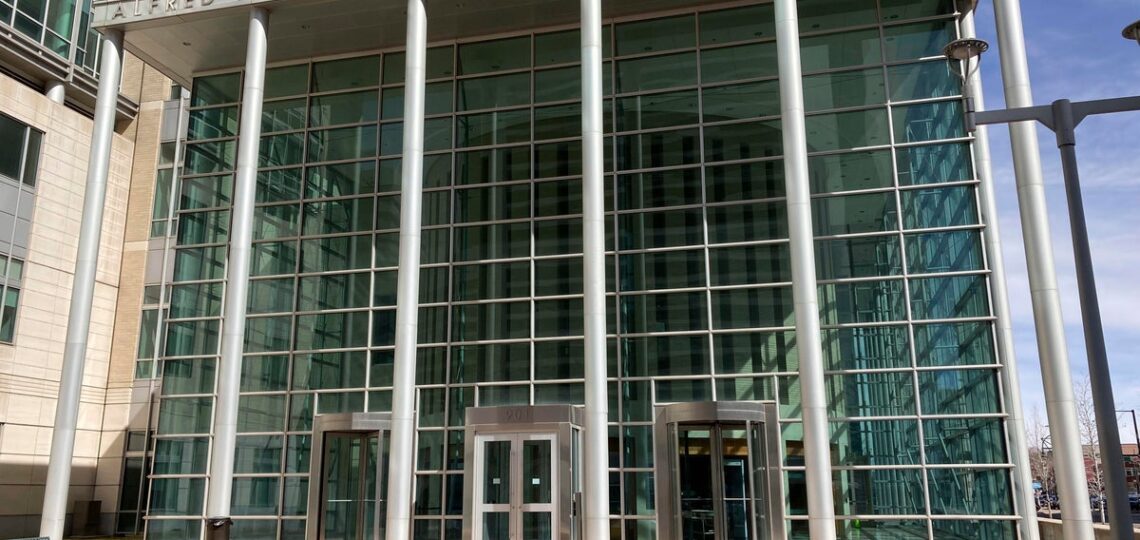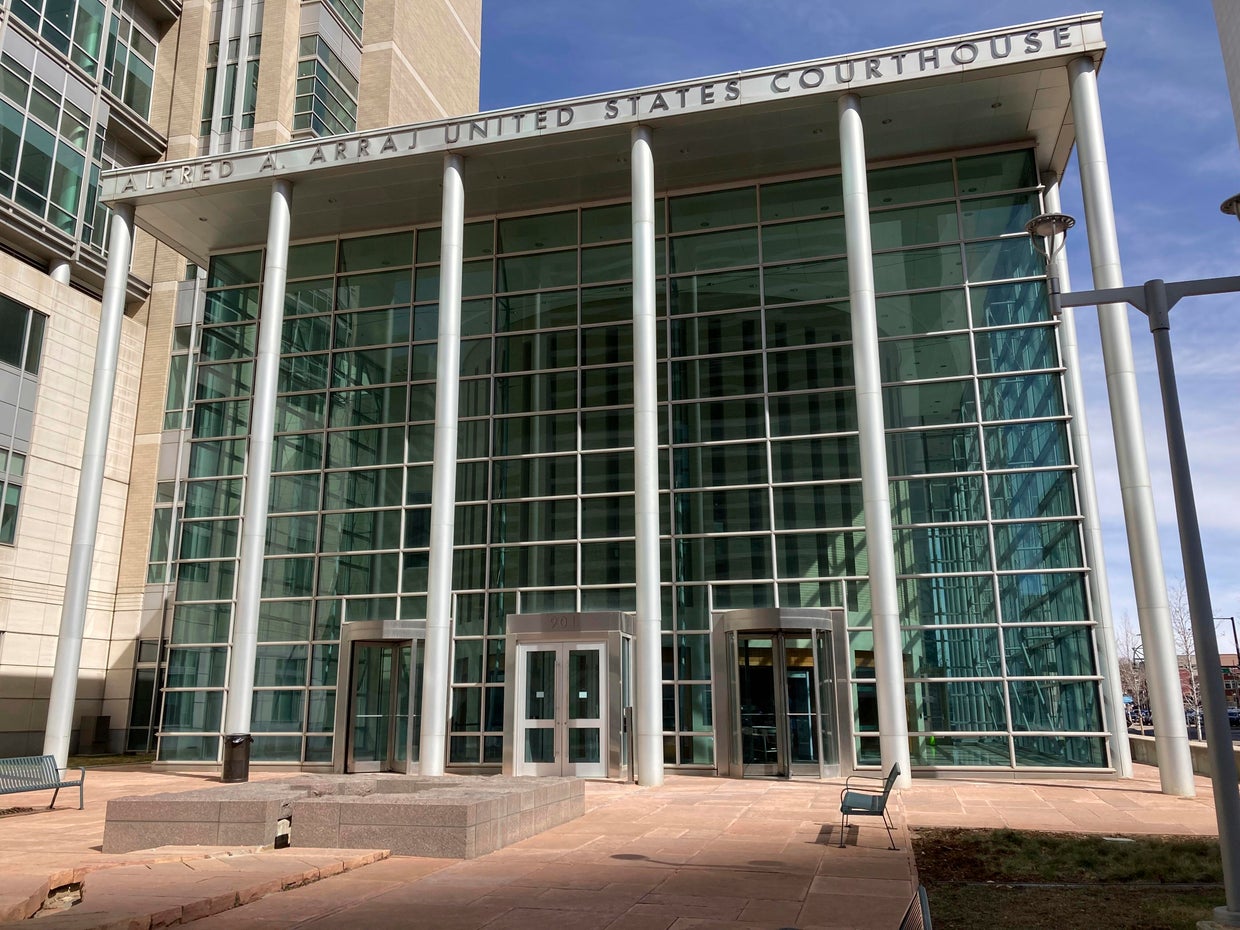
Trump’s use of Alien Enemies Act deportations face legal test in Colorado federal court
A showdown in federal court in Denver could help shape the future legal landscape surrounding deportations nationwide.
A high-stakes hearing concluded Monday morning in a case filed by immigrants’ rights groups against the Trump administration. Attorneys for the administration argued that people facing deportation should only be allotted 24 hours’ notice to be able to fight their deportation order in court, but attorneys for the ACLU and Rocky Mountain Immigrant Advocacy Network argued that 24 hours isn’t “reasonable,” as ordered by the U.S. Supreme Court.
“The government wants to give as little notice as possible so they can pull people out of the country without a judge reviewing it,” Tim Macdonald, legal director of the ACLU of Colorado, told CBS News Colorado outside the Alfred A. Arraj U.S. Courthouse on Monday.
“The idea that 24 hours is sufficient for someone who’s detained at the Aurora detention facility, who likely doesn’t speak English, who may not have a high level of education, who doesn’t have a lawyer, who doesn’t have access to a phone — the idea that that person can file a, quote, ‘writ of habeas corpus’ in 24 hours is preposterous,” he continued.
CBS
Macdonald went on to say that alleged Nazis were afforded more rights in court after World War II than Venezuelans facing deportation under the Trump administration, echoing what a U.S. Appeals Court judge said in Washington, D.C. last month.
Charlotte Sweeney, U.S. District judge for the District of Colorado, said on Monday she wouldn’t rule on the case for 24 hours. During that hearing, attorneys for the ACLU and Rocky Mountain Immigrant Advocacy Network said 11 people have been deported from Colorado to El Salvador and about 85% of people being held in the Aurora ICE Processing Center — which has 1,532 beds — have not yet been able to retain legal counsel, which those groups argue is a violation of their due process rights.
Court records show the hearing lasted just over an hour. In addition to President Trump, the defendants named in the case include U.S. Attorney General Pam Bondi, Secretary of Homeland Security Kristi Noem, ICE Director Todd Lyons, Secretary of State Marco Rubio, ICE Denver Field Office Director Robert Gaudian, and Dawn Ceja, warden of the ICE Processing Center in Aurora.
AP
The U.S. Supreme Court issued a rare weekend ruling temporarily halting the Trump administration’s plan to deport more Venezuelan migrants from a Texas detention facility under a seldom-used wartime law passed in 1798, the Alien Enemies Act.
The president has invoked the Alien Enemies Act, allowing the executive branch to detain or deport noncitizens it deems “dangerous,” particularly those administration officials say are part of the gang Tren de Aragua. Last month, the administration used the law to send more than 200 people to a prison in El Salvador.
The Supreme Court’s weekend ruling came as mass protests continued across the country, including in Colorado, denouncing the Trump administration’s immigration policies. The administration is urging the court to reconsider its decision blocking the deportations.
Now, El Salvador’s president has proposed exchanging the deported migrants for political prisoners held in Venezuela.
In Denver, a federal court recently barred the removal of any noncitizens within Colorado who are or will be subject to the Alien Enemies Act. Some of those previously deported from Colorado have already been sent to the El Salvador prison, according to their attorneys.
At issue is what kind of legal rights migrants have to challenge the government’s allegations before they are removed from the U.S.
Trump has said the United States is facing an “invasion” by the Tren de Aragua gang and that he has the authority to use the 1798 law. The act was last invoked during World War II, including in Colorado, to hold Japanese Americans at internment camps, including Camp Amache.
Prior to World War II, the act had only been used against the Central Powers during World War I and against the British during the War of 1812.
“If you think of internment camps during World War II in the United States, that’s the kind of framework that we’re looking at in terms of how this law has been used in the past,” Laura Lunn, an immigrant advocacy lawyer with the Rocky Mountain Immigrant Advocacy Network, said.
CBS
The legal battle has triggered a series of emergency filings over the weekend after the Supreme Court bumped a case out of U.S. District Court for Washington, D.C., saying it needed to be filed in Texas and other states from which people are being deported.
Asked about why this case matters, Macdonald said, “if the government can remove these folks without due process, it erodes civil liberties for every one of us, and they could be next. We could be next. If the government is able to dispense with due process, it’s a risk for liberty for all of us.”


